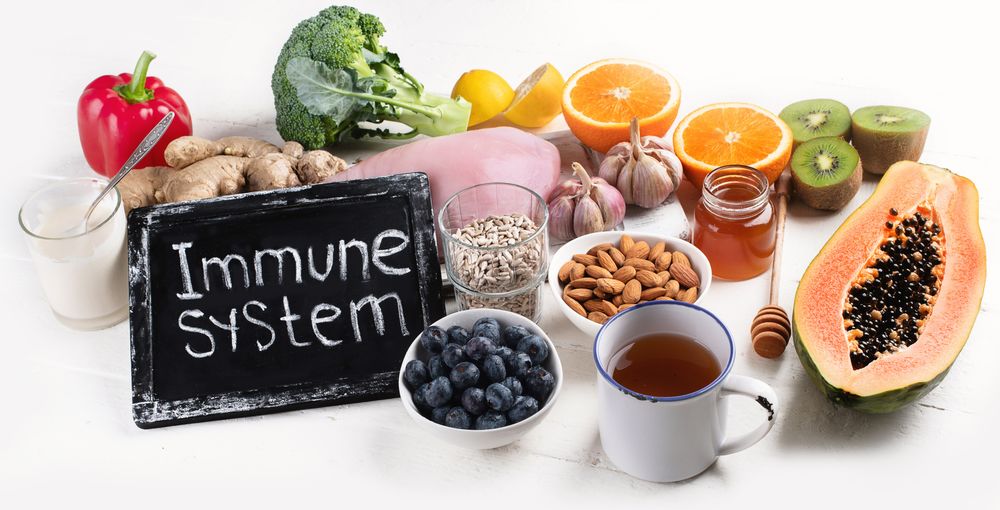Healthy eating is not just a passing trend; it is a fundamental aspect of maintaining a robust and flourishing lifestyle. The food choices we make directly impact our overall well-being, influencing various aspects of physical and mental health. Let's explore the remarkable benefits of embracing a diet rich in nutritious foods.
1. Weight Management and Body Composition

One of the most evident benefits of consuming healthy foods is the positive impact on weight management. A balanced diet, consisting of fruits, vegetables, lean proteins, and whole grains, helps regulate body weight by providing essential nutrients without excess calories. This, in turn, supports optimal body composition and reduces the risk of obesity-related issues.
2. Sustainable Energy Levels
Healthy foods serve as the body's primary source of energy, offering a sustained and stable supply of fuel. Unlike sugary snacks and processed foods that lead to energy spikes and crashes, nutrient-dense options provide lasting energy throughout the day. This results in increased productivity, improved concentration, and a reduced reliance on caffeine or sugary drinks for energy boosts.
3. Digestive Health and Regularity
Fiber-rich foods, including fruits, vegetables, and whole grains, play a pivotal role in maintaining good digestive health. Adequate fiber intake promotes regular bowel movements, prevents constipation, and supports a healthy gut microbiome. A well-functioning digestive system enhances nutrient absorption and contributes to overall digestive well-being.
4. Fortified Immune System

Nutrient-packed foods are essential for bolstering the immune system, the body's defense against infections and illnesses. A diet rich in vitamins, minerals, and antioxidants enhances immune function, helping the body ward off common colds, flu, and other ailments. Regularly consuming a variety of colorful fruits and vegetables contributes to a robust immune response.
5. Mitigation of Chronic Diseases
Adopting a healthy diet is associated with a reduced risk of chronic diseases, including heart disease, diabetes, and certain cancers. The abundance of antioxidants and anti-inflammatory compounds in whole foods helps lower inflammation levels, a key factor in the development of chronic conditions. Prioritizing nutrient-dense options contributes to long-term health and disease prevention.
6. Cardiovascular Health
A heart-healthy diet is crucial for maintaining cardiovascular well-being. Foods rich in omega-3 fatty acids, soluble fiber, and antioxidants contribute to lower cholesterol levels, reduced blood pressure, and improved blood vessel function. These factors collectively support heart health and reduce the risk of cardiovascular diseases.
7. Cognitive Function and Mental Health

The impact of diet on mental health is increasingly recognized. Nutrient-dense foods provide essential components for optimal brain function, contributing to improved cognitive performance, focus, and memory. Moreover, a healthy diet is linked to a lower risk of mental health issues such as depression and anxiety.
8. Skin Health and Radiance
The saying "you are what you eat" holds true when it comes to skin health. Nutrient-rich foods, particularly those high in vitamins A, C, and E, contribute to healthier skin. Antioxidants protect the skin from oxidative stress, promoting a radiant complexion and reducing the risk of skin conditions.
9. Quality Sleep Patterns
Certain foods contain compounds that promote better sleep quality. Incorporating foods rich in tryptophan, magnesium, and melatonin, such as nuts, seeds, and certain fruits, contributes to improved sleep patterns. A balanced diet combined with good sleep hygiene positively influences overall rest and recovery.
10. Longevity and Aging Gracefully

A diet that supports overall health and well-being is associated with longevity and aging gracefully. Nutrient-dense foods contribute to cellular repair, protection against oxidative stress, and a reduction in the risk of age-related diseases. Eating well not only enhances the quality of life but also promotes vitality as individuals age.
Conclusion
The benefits of incorporating healthy foods into your diet extend far beyond mere physical appearance. It is a holistic approach to wellness that positively influences various facets of your life, from energy levels and immune function to mental well-being and longevity. By making mindful and nutritious food choices, you are investing in your present and future health, paving the way for a vibrant and fulfilling life.
FAQs
Q. Can healthy eating positively impact mental health?
Ans: Yes, nutrient-dense foods are linked to improved cognitive function and a lower risk of mental health issues such as depression and anxiety.
Q. Do I need to follow a specific diet to experience these benefits?
Ans: While specific diets may offer unique advantages, the key is to focus on a balanced and varied diet that includes a wide range of nutrient-dense foods.
Q. How quickly can one experience the benefits of healthy eating?
Ans: The timeline varies among individuals, but positive changes in energy levels and overall well-being can often be noticed within a few weeks of adopting a healthier diet. Long-term benefits may take more time.
Q. Can a healthy diet help with weight loss?
Ans: Yes, a balanced and nutritious diet is a crucial component of sustainable weight management. It promotes healthy weight loss by providing essential nutrients while controlling calorie intake.
Q. Are there specific foods that boost the immune system?
Ans: Foods rich in vitamin C (citrus fruits, berries), vitamin D (fatty fish, fortified foods), and zinc (nuts, seeds) are known to support immune function. However, a diverse and balanced diet overall contributes to a robust immune system.










